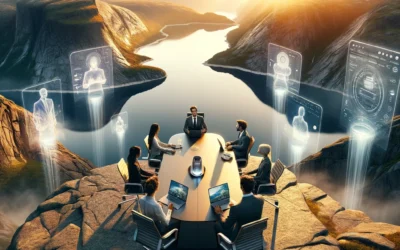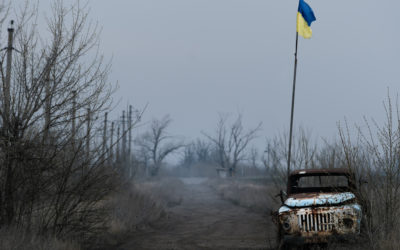2022 will be another tumultuous year, by all accounts. A just-released survey by management consulting firm Alix Partners of 3,000 executives reveals that 72% are afraid of losing their jobs in 2022, and 94% predict significant change in their business models.
Here are ten of the challenges CEOs must grapple with this year.
1. Enterprise Transformation
Leaders are worried that ongoing transformation initiatives are taking too long. As we have frequently mentioned over the last several years, most so-called transformation efforts are more about modernization, but even this has been a challenge to achieve.
2. Attracting and Retaining talent
After two years of the Social Distancing Economy, employees are frustrated with jobs that give them little satisfaction and too much stress. People are leaving their jobs in larger numbers than ever. CEOs worry about attracting and retaining people with the skills and experience to continue the transformation efforts begun before the pandemic. There is also a labor shortage in many blue-collar professions. This has led to business interruptions, delays, and customer grievances. An annual survey by the Conference Board cited labor shortages as one of the top CEO concerns for 2022.
3. Industry Disruption
It is not enough to modernize the as-is enterprise. CEOs must also pursue new products and services that defend against or preferably achieve new industry disruption through new business models and new technologies. It is more difficult to predict where the next competitor will come from, especially since abundant capital is available to fund startups. These startups compete for the talent needed by industry incumbents.
4. Adapting to hybrid work
There are distinct advantages to bringing people together in the same physical workspace, but we will likely never return to the traditional office environment. Enterprises must make the office a safer and more productive place, which means tenants and landlords must make the office more collaboration-friendly. CEOs must also do a better job of leading people who are remote most of the time.
5. Supply chain disruptions
Many industries still suffer from shortages and delays. The pandemic has severely impacted semiconductor manufacturing. Since so many products contain sensors and microprocessors, a broad range of sectors is affected. Labor shortages have also impacted trucking, shipping, and warehouses.
6. Geopolitical uncertainty
European CEOs, in particular, are worried about the potential for military conflict in Europe, with Russia poised to invade Ukraine. A military conflict would have a devastating economic impact in Europe, especially given the European dependency on Russian energy. Geopolitical tensions also have implications for supply chains, and with China threatening Taiwan, many are glad to see Intel investing in building a new fab complex in Ohio.
7. Cybersecurity
As enterprises continue their digital modernization, they remain vulnerable to cyberattacks. If there is a military conflict in Europe, cyberattacks will likely increase dramatically, but even now they are an ongoing concern for all enterprises.
8. Inflation
After many years with central banks cutting interest rates to zero to facilitate increasing government debt and economic “stimulus,” the inflation we are seeing is inevitable. It is the highest we have seen in forty years here in the U.S. Salaries must be increased for people to keep up with their increased cost of living. Operating costs are rising for businesses as well, which .puts pressure on CEOs to find new efficiencies through automation or raise prices.
9. Slowing growth
While the economy saw rapid growth in 2021, the World Bank estimates slower global growth this year. The adjustment could be more unpleasant if central banks become more aggressive about ending the zero interest rates. CEOs must work faster to transform their companies and find new growth from new technologies, business models, and ventures.
10. The pandemic is still here
CEOs face continued uncertainty concerning potential government action, which affects all of the above challenges. In The Pre-Post-Pandemic, we discussed why it’s premature to discuss post-pandemic anything. We are still in a state of navigating through the pandemic, with many other challenges that have to be dealt with simultaneously.










